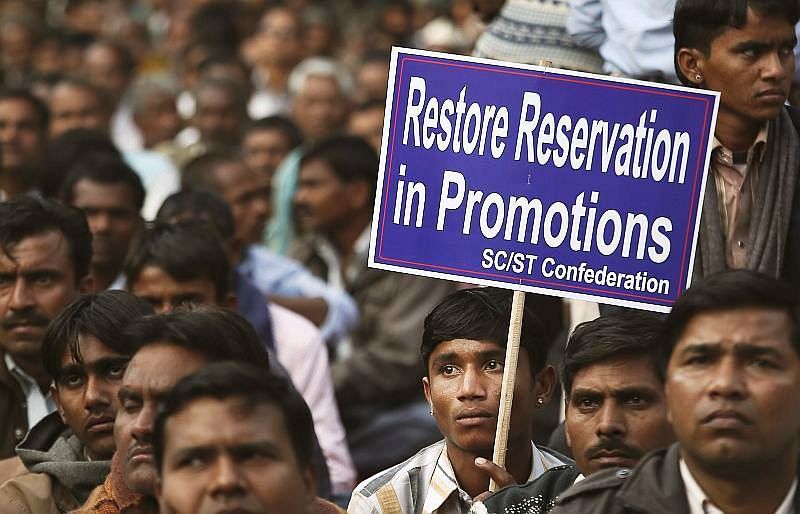Last week’s Supreme Court judgement on reservation in promotions has brought this contentious issue back into the focus. The court has lifted the stay on reservation-based promotions for Scheduled Castes and Scheduled Tribes and allowed them till a Constitution bench takes a final decision in the matter. This has given a shot in the arm for the government which had gone in appeal against a Delhi high court judgement of August last year striking down a 1997 administrative order mandating reservation in promotions. It has helped the Narendra Modi government to score a political point also, because it has been receiving much criticism for its treatment of Dalits. There is a growing feeling among Dalits that the government has not acted promptly and sincerely to protect their interests. So, the government might now think that the judgement has given it an opportunity to support and fulfil an important Dalit demand.
But in practice, the judgement may not be of much use as it carries a contradiction and may therefore be considered even erroneous. It has actually been interpreted as both supporting reservations as also making such promotions difficult, if not impossible. The court has not allowed reservation-based promotions unconditionally but stipulated that they can be effected only if the government can establish under-representation of SCs and STs in public employment and administrative efficiency is not adversely affected. The condition relating to representation was introduced by a constitution amendment in 1995. The efficiency norm and another condition — that the backwardness of the community should also be established for promotions — were introduced by the Supreme Court in the Nagaraj case in 2006. In 2012, the Supreme Court struck down a UP government order on promotions on these grounds. Last year, it said in the Karnataka case of promotions that lack of proportional representation in services was not enough to grant consequential seniority to promotees.
What the court has said now is that the government can go ahead with the promotion policy “as per the law, if there is a law’’. The question is, which law. Since the conditions are part of the law the government may not be able to implement the promotion policy without satisfying them. A constitutional amendment that sought to override these conditions is stuck in parliament. There are many court orders in the matter and most of them have not wholly accepted the idea of reservation in promotions. It is not a fair and equitable principle. Reservations at the entry level are an essential requisite of social justice. But reservations in promotions do not promote public interest and are not good from the administrative point of view.
